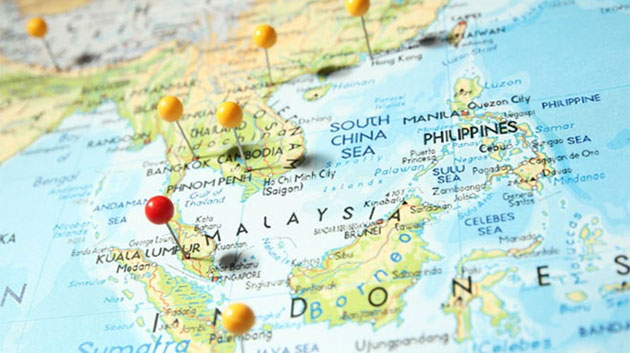International Court Rules China Has No Legal Claim over South China Sea
China's Economic and Military Encirclement Network
On the 12th, an international court in The Hague, Netherlands, declared that China has no legal authority over the South China Sea according to the United Nations Convention on the Law of the Sea.
In the 1950s, China declared its jurisdiction over almost the whole South China Sea pointing to the nine-dash line, a demarcation line drawn independently by China. From a view of the international law, however, this claim had absolutely no legal ground whatsoever, and The Hague court did refer to this nine-dash line during the proceedings. So, for the first time in recent history the International Court of Justice rejected China’s claims over the South China Sea.
The court concluded that China’s artificial islands and other disputed islands were rocks, and thus too small for China to claim the South China Sea as an exclusive economic zone (EEZ). The court also mentioned that China breached international law “when they physically obstructed Philippine vessels”.
China is Practically Saying, “Who Cares About International Law?”
Of course China will oppose this conclusion.
In reaction to the Tribunal’s decision, Chairman of China, Xi Jinping, repeated his usual words: “the South China Sea has been Chinese territory since long ago, and no court can ever affect one’s territorial sovereignty and marine rights.”
Foreign Minister for China, Wang Yi, also used strong words to attack the Philippines. He said that it is contrary to the spirit of a law-governed state for the Philippines to reject talks with China and one-sidedly use an arbitrator without China’s acknowledgement.
The most outrageous aspect is that, in truth, it is actually China that has been refusing to have talks about territorial issues of the South China Sea.
An Encirclement Network to Make China Obey the Law
Master Ryuho Okawa, founder of Happy Science, recorded an interview with the guardian spirit of Xi Jinping just before the latter’s inauguration as Chairman of China. Xi’s guardian spirit spoke of his ambitions. “I will make China a world empire like the Yuan dynasty by making it the world’s greatest power in all areas, including the economy and military.” He revealed his past life to be Genghis Khan, founder of the Mongol Empire.
We expect China to continue extending its influence in the South China Sea, and to put more economic pressure on nearby countries to avoid isolation. Already this year we have seen strange things occurring, wherein many anti-Chinese leaders in Mongolia and Vietnam have had to step down to be replaced by pro-China politicians and people of power.
We cannot underestimate China. They have the means to use both hard power – where they intimidate using their military menace – and soft power – where they use economic and diplomatic methods.
For China the Hague court case is nothing more than a piece of paper, as it has no license to penalize or enforce. We can hardly expect China to follow the rules laid out by the tribunal. Then all we can do is to try and engage all of the countries that are troubled by China’s South China Sea dominance to press China into accepting the court’s decision.
In a situation like that having talks will mean nothing to China, but there is a language that they will understand: economics and military. This is why Japan must strengthen economic and military ties with countries in Asia and the G7. There is a need to create a powerful encirclement network that will make China think that following the law is the only advantageous possibility.


![The Laws of Justice: How We Can Solve World Conflicts and Bring Peace [Paperback] by Ryuho Okawa/Buy from amazon.com](/files/2016/07/160707_amazon.jpg)

















